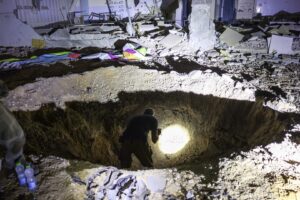Members of the European Parliament and international experts participating in a recent conference in Madrid have urged all the countries of the European Union (EU) to support the Moroccan autonomy initiative, now more than ever, in order to resolve the dispute over the Sahara and ensure the stability of the Maghreb region.
The autonomy plan proposed by Morocco in 2007 to definitively end the dispute over the Sahara is a “realistic and effective solution to bring stability to the region,” the participants stressed at the conference organized by the Spanish think tank Coordenadas para la gobernanza y la economía aplicada.
The panelists, including Fernando Fernández Aguirre, a colonel in the Spanish Army Reserve, Fernando García Blázquez, deputy director of the General Gutiérrez Mellado Institute, and Álvaro Fernández de Aráoz Gómez de Acebo, a cybersecurity expert, as well as Spanish MEP Antonio López-Istúriz and Italian MEP Fabio Massimo Castaldo, urged the 27 member states to support Morocco’s position in order to strengthen ties between the two shores of the Mediterranean.
The panelists called on the EU to reconsider its policy towards the Maghreb, in particular by strengthening relations with Morocco that they described as “a partner committed to its agreements with the European Commission.”
They also stressed the need to continue to encourage and support democratic reforms in the partner countries, especially in Morocco.
The Coordinates for Governance and Applied Economics is an institute for reflection and research on the interaction between governance and applied economics in order to “constructively and decisively advance the trinomial of social welfare, economic progress and environmental sustainability.”
Source : The North Africa Post
















